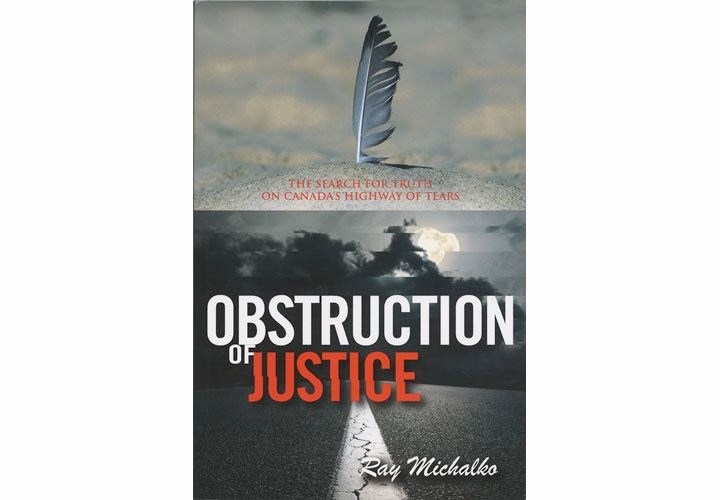The Highway of Tears is a remote place and a complex issue where people and policies can be abused, misused and go missing altogether.
Ray Michalko knows the miles of asphalt and the tangle of emotions more than most.
Sometimes on someone's payroll and sometimes on his own volunteer dime, Michalko has spent more than a decade looking into many of the cases that make up the missing and murdered women along the general corridor of Highway 16 between Prince George and Prince Rupert (the official investigation includes other places as well, and the unofficial list of such victims extends even wider).
He has been so committed to the victims and their families that he has sometimes run afoul of his former employers, the RCMP. He is now a veteran private investigator, and as of this week, also an author. He has detailed his time on the Highway of Tears trail in the new book Obstruction of Justice, published by Red Deer Press.
"Threaten is too harsh a word, but the RCMP strongly suggested at one point that I could perhaps be charged with obstruction of justice if I continued my inquiries," Michalko said.
"That was a moment I could never forget. I thought it would be a good starting point for the book. I mean, it was absurd. We're all on the same side, here, and I would have been the only one ever charged with anything related to the Highway of Tears, and I was doing everything in my power to help."
The legalities were eventually smoothed over, and Michalko continued his work, as did the RCMP. That continues to this day, but that and other investigative differences left Michalko with a lingering concern that the national police force was not giving these many victims, plus their grieving families and wounded communities, a maximum effort.
"The men and women in the RCMP out on the road I have no problem with," he said. "In fact, those members and I have a lot of conversations together as part of my work and their work. It was some of the bosses in Vancouver that caused the problems I kept running into."
Part of the problem, he said, was inexperience with private investigators by police in B.C. The majority of PI work in this province pertains to ICBC or WorkSafeBC hiring investigators to catch cheaters of the public system. Much less PI work is done like Michalko does it - the gumshoe style where a professional investigator (it is a regulated industry) is hired to conduct research and interviews around a mystery.
"I think I helped educate them about what we do, and the relationship isn't as bumpy anymore," he said. "I hope they think it's better to agree to disagree and leave me alone to do my work since it is along the same lines as their goals, too."
What all sides agree on is how difficult it is to investigate murders and disappearances in a place with so much geography, so few people, and for the longest time a culture that was insensitive to the anguish of aboriginal families who were predominantly the victims.
Michalko said police technology improvements would help, like a homogenous data system for police departments from coast to coast.
Also, he considers the prosecution threshold in B.C. (each province governs its own process for the laying of charges against a suspect) to be the worst in the nation, according to his observations and the conversations he's had over the years with various police departments.
Some systemic improvements that have been suggested, however, are harder to envision. Michalko wonders how it could ever be possible to have an effective shuttle service to connect all the communities of the north at all hours of the day and night to ward off the need to hitchhike and thus be vulnerable to predator drivers.
"I have not written a book that makes the police into villains. I am not blaming the RCMP or the government or outdated ways of thinking for why these girls have all become tragic victims," he said.
"I bring up what I've seen, I talk about what I've experienced, I discuss the concerns of the families and the communities that I've worked with over the years, but I let the readers draw their own conclusions."
Which is not to say he hasn't formulated some strong theories over the years.
He is convinced, as are police members he's talked with, that some of the perpetrators of these crimes are within the sights of himself and the RCMP but the definitive evidence is still pending.
He is getting his pent up investigational frustrations out on paper.
He is working on more books, now, and is enjoying the writing process as much as the PI process.
Michalko will be at Books & Company on Friday from 4:30 p.m. to 7:30 p.m. and at the Quesnel branch of Books & Company on Saturday.



